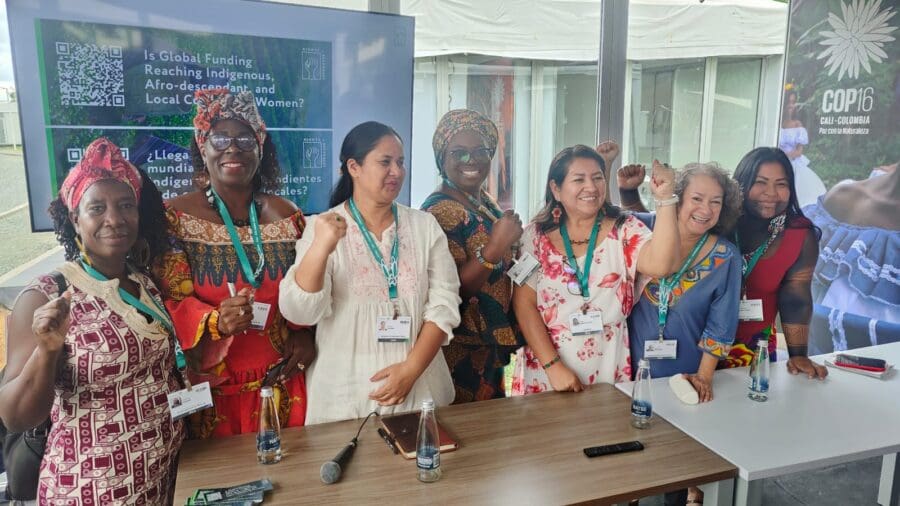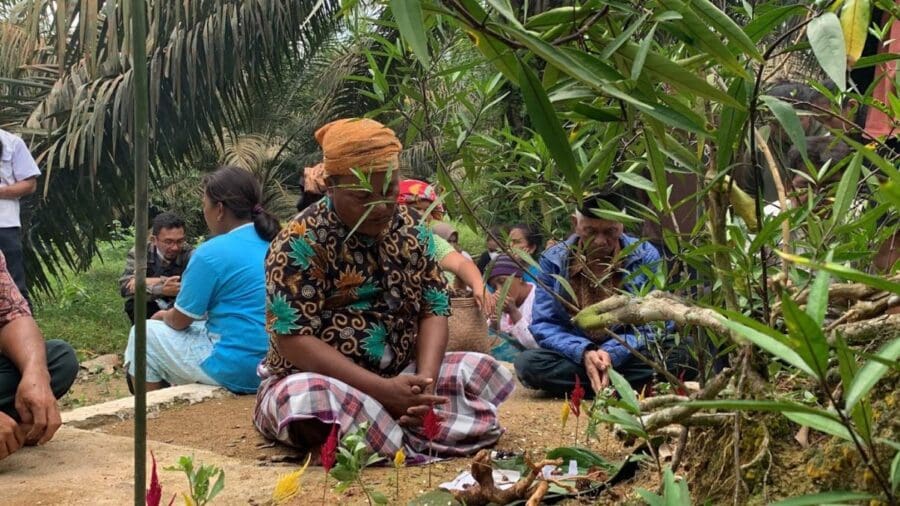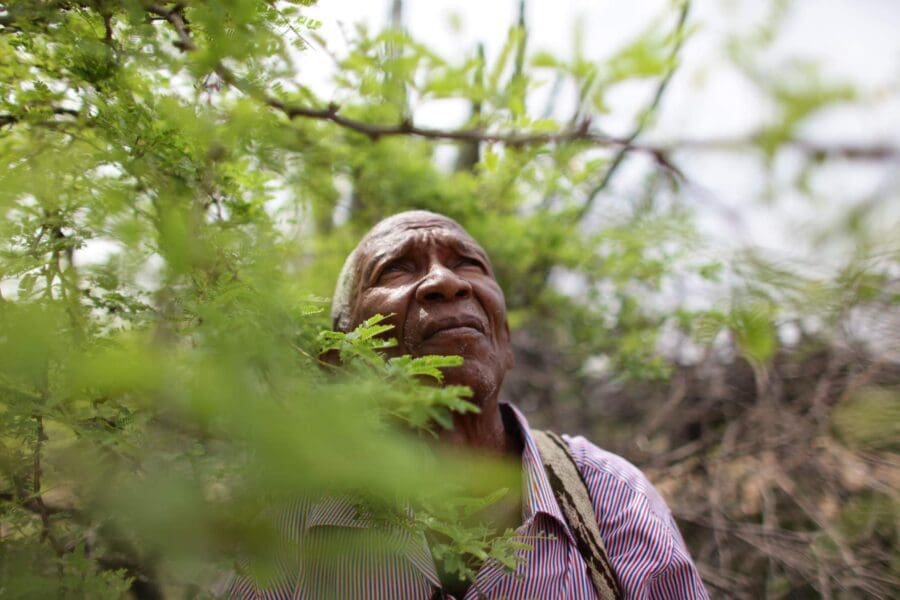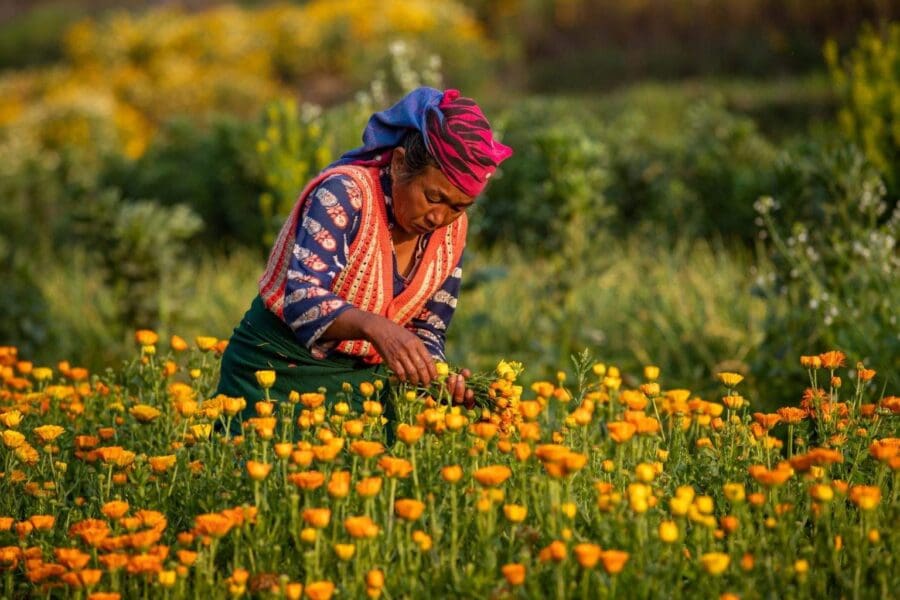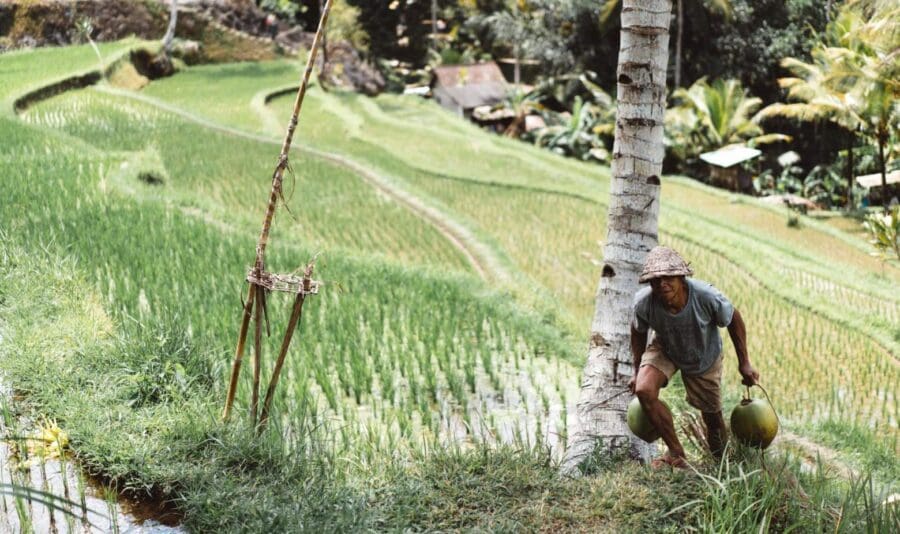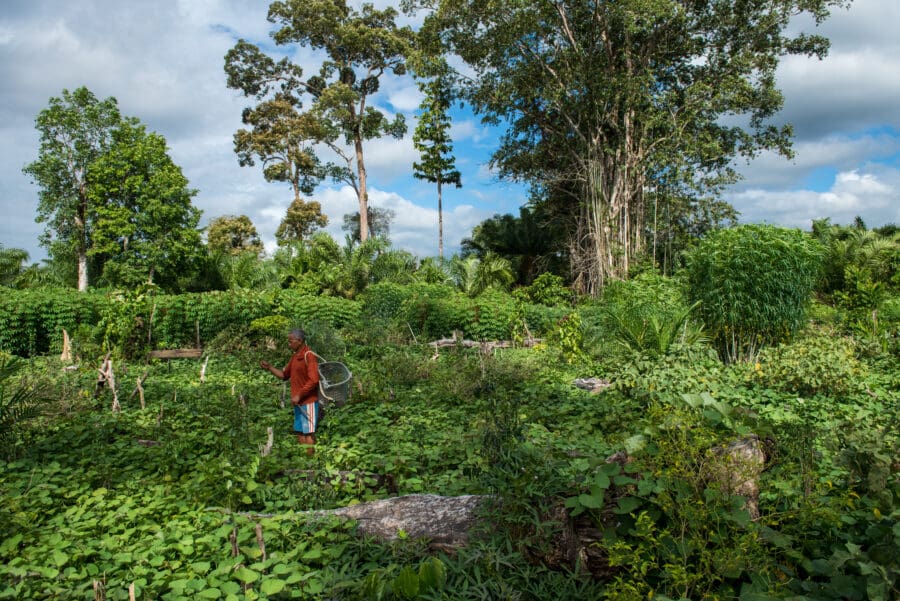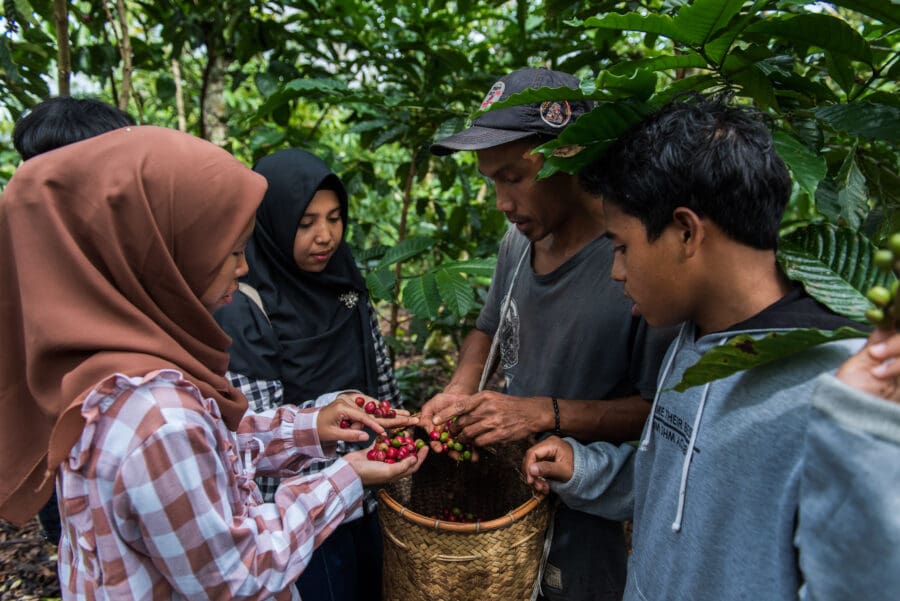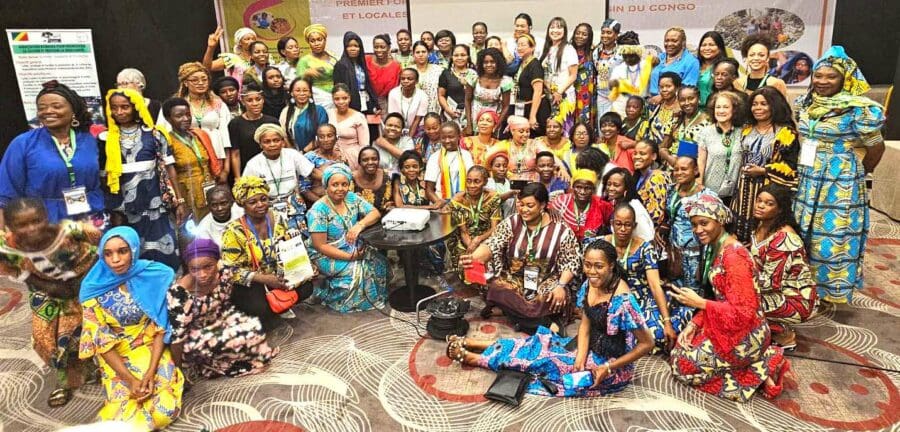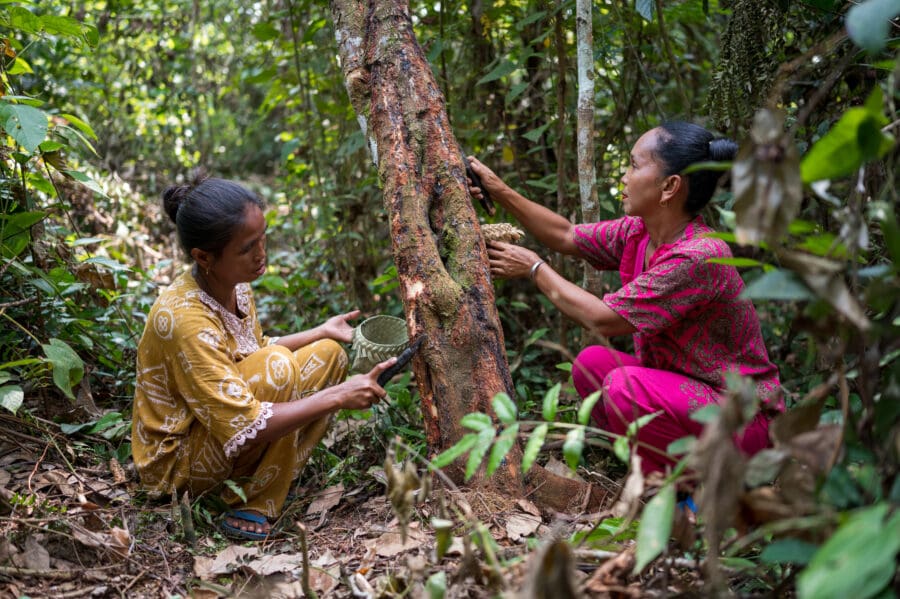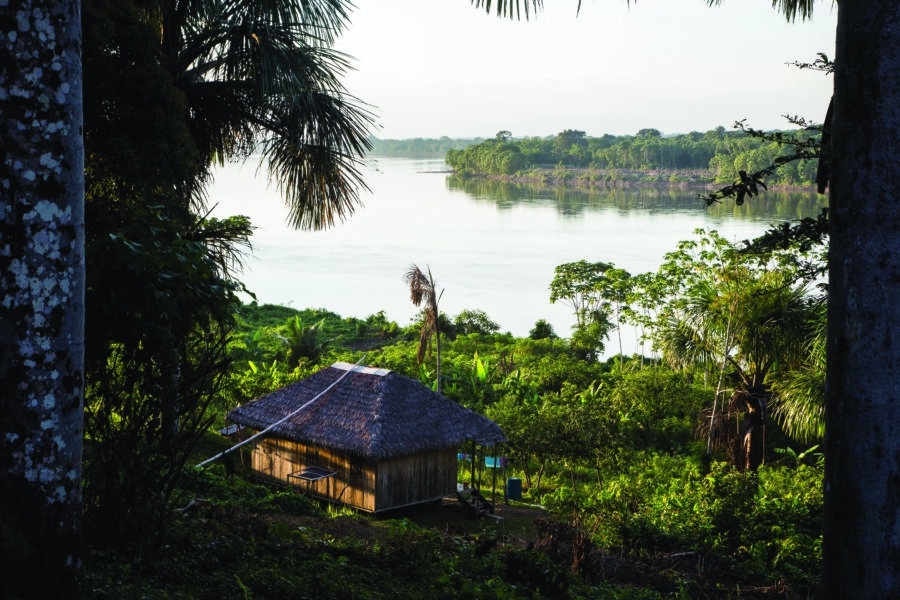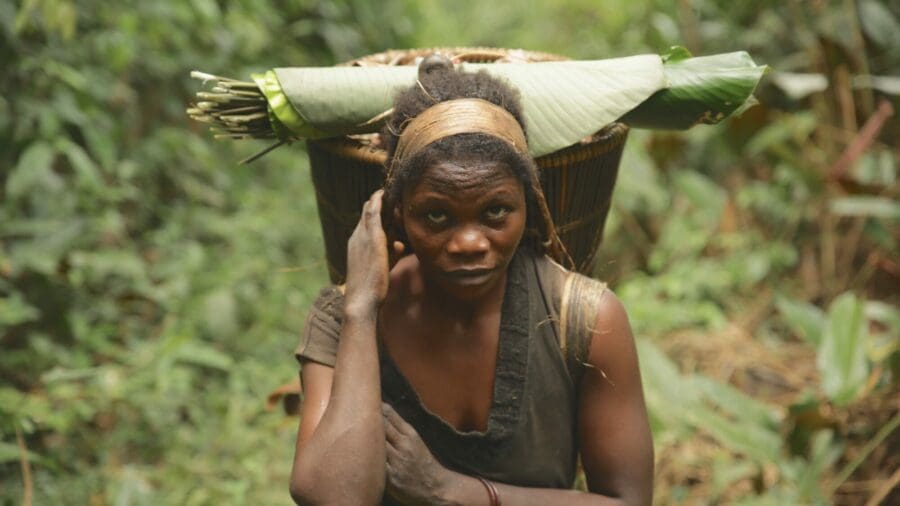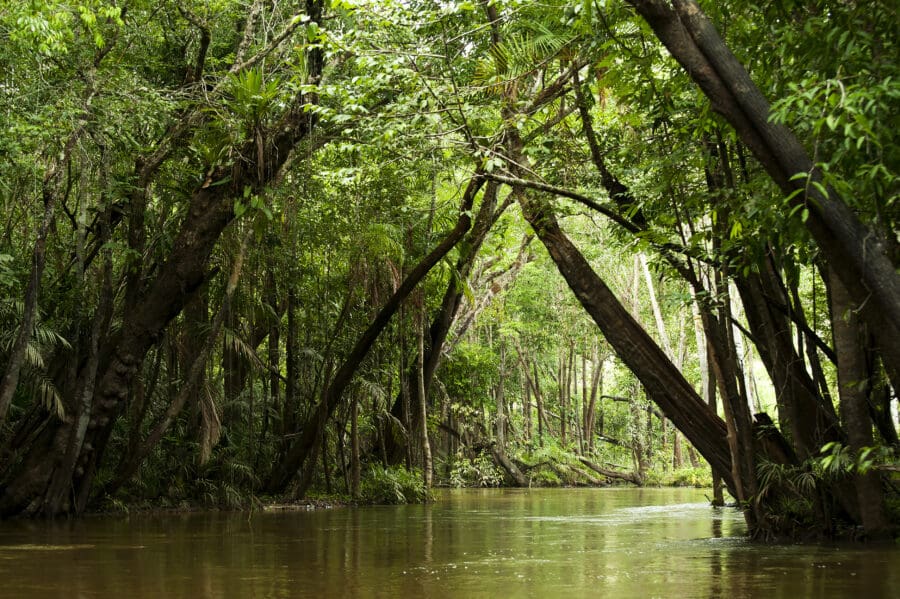A new Afro-descendant Atlas, launched at the UN CBD CoP16, showcases for the first time the ancestral territories, rural settlements, and collectively owned lands of Afro-descendant Peoples across 15 countries in Latin America and the Caribbean.
A new study examining the state of global financing for Afro-descendant, Indigenous, and local community women launched at the UN CBD COP16 addresses a crucial lack of data on gender equity-focused funding and was launched by the Rights and Resources Initiative and the Women in Global South Alliance.
The Roundtable on Sustainable Palm Oil (RSPO) has found PT Inecda Plantations, a subsidiary of Korea-based Samsung C&T Group and a certified member, in breach of its sustainability standards on the Indigenous Talang Parit territory in Indonesia.
A declaration released at a press briefing on June 15 highlights significant overlap between lands claimed by Afro-descendant Peoples in Latin America and the Caribbean and biodiversity hotspots; calling for the inclusion of the term Afro-descendants in the Convention on Biological Diversity (CBD) and UN Framework Convention on Climate Change (UNFCCC).
This platform helps coalition members, donors, and allies gain a better understanding of RRI’s global network and documents how each member contributes to the collective mission of advancing local peoples' land, territory, freshwater, and resource rights.
Rights and Resources Initiative and Rainforest Foundation Norway are thrilled to announce the launch of the Path to Scale dashboard, a new open-source online tool that gives easy access to donor funding data for Indigenous Peoples’, Afro-descendant Peoples’, and local communities’ tenure and forest guardianship.
The Rights and Resources Group’s Board of Directors has named as its newest members three global leaders in environmental, financial, and human rights advocacy: Emma Norrstad Tickner from Sweden; Emily Kinama from Kenya; and Peter “Mike” Bryan from the United States. They join Gam Shimray, an Indigenous Naga leader from Northeast India who joined in October 2023.
In the lead-up to COP28, amid a growing push to restore degraded and deforested lands as natural climate solution, a new peer-reviewed study shows better outcomes when Indigenous Peoples and local communities are in charge.
More than 300 representatives of Indigenous Peoples, local communities, governments, donors, and NGOs from 47 African countries gathered last month in Namibia to collectively develop a strategy for community-led and people-centered conservation in Africa.
More than 100 participants from 11 countries gathered in Arusha, Tanzania, this week for the 4th Conference of National Land Institutions in Africa, working to secure community land rights.
Rights and Resources Group has acquired the LandWise Law Library, a crucial digital compilation of articles, and research on women’s land rights and tenure.
The Rights and Resource Group has selected Deborah Sanchez, an Indigenous Miskitu woman from Honduras to lead its funding mechanism, CLARIFI (the Community Land Rights and Conservation Finance Initiative). Deborah will officially assume her role on September 11, 2023.
According to a new report by RRI, existing national laws have the potential to recognize Indigenous Peoples’, Afro-descendant Peoples’, and local communities’ rights to own or control more than 260 million hectares (Mha) of land across the world—an area twice the size of Peru.
A new resource seeks to support companies and investors in understanding the shared value community monitoring could add to their operations and investments, and outlines principles to help them build productive partnerships with communities to secure their land tenure and improve compliance with environmental and social standards and commitments.
Women leaders from Africa, Asia, and North and South America gather in Brazzaville to strengthen the global solidarity movement for women-led initiatives to protect biodiversity and build climate resilience.
Indigenous and community leaders from North America and the global South come together to build relations and strengthen a global solidarity movement around Indigenous and community-led responses to the global biodiversity and climate crises.
President Félix Antoine Tshisekedi of the Democratic Republic of the Congo (DRC) has signed a historic bill to protect and promote the rights of Indigenous Pygmy Peoples into law. This is the first-ever legislation in the country to recognize and safeguard the specific rights of Indigenous Peoples.
On November 11 at CoP27, 41 grassroots women’s organizations from Asia, Africa, and Latin America launched a new advocacy network called the Women in Global South Alliance for Tenure and Climate.
This analysis highlights the urgent need to work on a rights-based approach to conservation in the Colombian and Peruvian Amazon considering the multiple collective rights of Indigenous Peoples and Afro-descendant Peoples. The study proposes a roadmap to transform, strengthen and expand existing conservation legal frameworks.
In this new report, researchers compiled data on this funding stream and assessed the grants along different dimensions of “Fit for Purpose” criteria—determining whether the funding achieved its intended goals or was compromised in delivery and effectiveness.
The Democratic Republic of the Congo’s Senate took a big leap forward on June 10, 2022 in recognizing the customary rights of its Indigenous population by adopting a new law on the Promotion and Protection of the Rights of the Indigenous Pygmy Peoples.
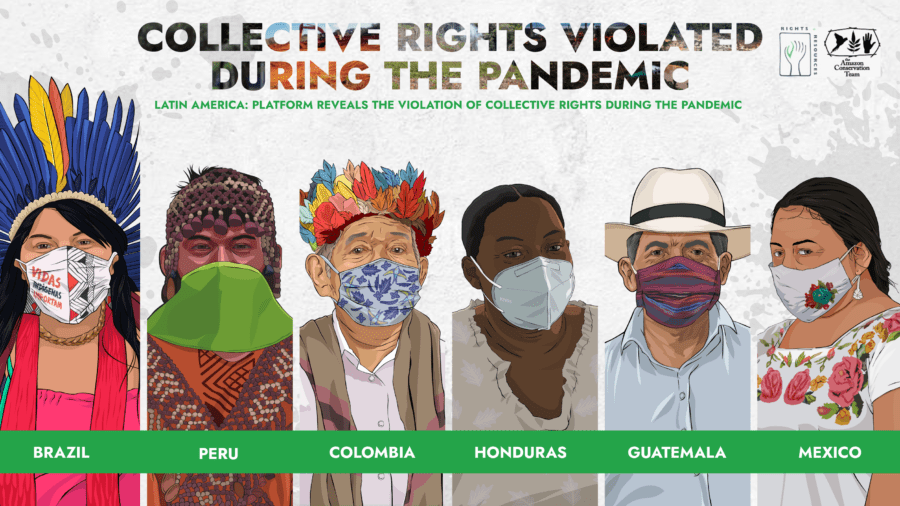
Over 1,900 Native communities impacted by extractive and infrastructure projects during the pandemic
Platform reveals the multidimensional impact of extractive and infrastructure projects in six Latin American countries during the first two years of the pandemic. Peru and Colombia are the countries with the most affected communities.
At UNFCCC COP 26, new research shows Indigenous Peoples and local communities hold at least 958 million hectares of land in countries spanning most of the world’s endangered tropical forests – yet have legal rights to less than half of their lands. Community-held lands sequester over 250 billion metric tonnes of carbon, and lack of secure rights threatens to release much of this carbon into the atmosphere through deforestation.
A longtime defender of Indigenous rights in Canada, Dr. M.A (Peggy) Smith will lead the governance of Rights and Resources Initiative – a global coalition of Indigenous and Afro-descendant Peoples and local community organizations.


